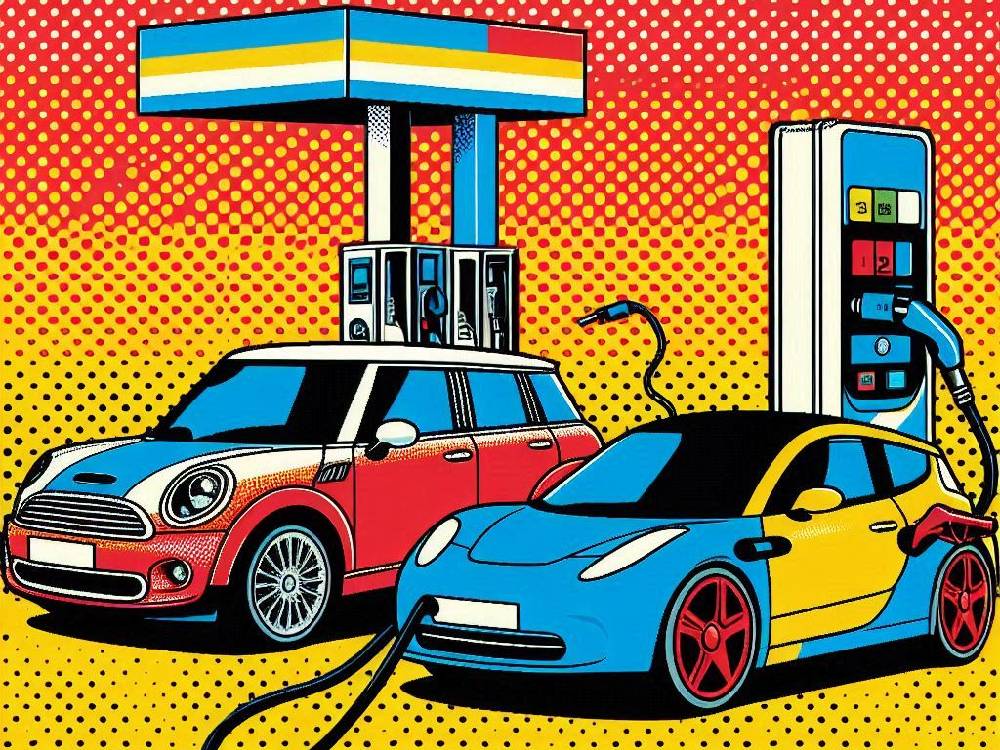Car Insurance Warning Issued To Everyone In The UK Who Drives Manual Cars

Introduction
Manual cars…
The UK motoring landscape is transforming at an unprecedented pace.
Significant changes are affecting car choices for the average driver.
Recent government policies and consumer trends bring new challenges for those driving manual vehicles.
Manual drivers must prepare for changes ahead.
Whether it’s the looming bans on petrol and diesel or the quiet rise of electric vehicles (EVs).
These shifts will impact every motorist, especially those committed to manual cars.
The State Of UK Roads And Automotive Preferences
The roads in the United Kingdom are adapting quickly to meet the demands of a new era in transportation.
Gone are the days when manual cars ruled the roads, seen as the pinnacle of driving skill and control.
Automatic vehicles, once considered a choice for less experienced drivers, are now the preference for many.
And for good reason.
Over the last decade, advancements in technology and a shift in driver preferences have brought automatic transmissions to the forefront.
Many car brands are now manufacturing their latest models as automatics.
The focus is on convenience, ease of driving, and fuel efficiency.
In a world that values smooth commutes and low-carbon emissions, manual transmissions are gradually falling out of favour.
Automatic cars are no longer seen as the “lesser” choice.
This preference for automatics isn’t just a passing trend.
From smoother gear changes to better handling in congested traffic, automatic cars are becoming essential for everyday drivers.
As manufacturers continue to phase out manual options, it’s only a matter of time before manual transmissions become a niche offering.
The shift is real.
And it’s here to stay.
Regulatory Changes And The Future Of Manual Cars
One of the most pressing issues for manual drivers in the UK is the upcoming regulatory changes.
The government plans to ban the sale of all new petrol and diesel cars by 2030.
Hybrid vehicles face a slightly later deadline of 2035.
This legislation doesn’t directly ban manual cars, but it will make it more challenging to buy one as time goes on.
So, what does this mean for manual drivers?
Simply put, electric vehicles are all automatic by default, which means manual transmissions won’t have a place in the EV market.
With the new regulations, manufacturers will be forced to produce automatic-only models, signalling an indirect phasing out of manual transmissions.
This shift effectively puts a “use-by” date on petrol and diesel vehicles, and by extension, manual cars.
Notably, anyone buying a car after December 31, 2029, will likely have limited choices if they want a petrol or diesel manual.
By this point, electric cars are expected to dominate showrooms.
Manual vehicles will likely be relegated to the second-hand market.
2030: Ban on new petrol and diesel cars.2035: Ban on hybrid vehicles.Impact: Electric cars, which are automatic by design, take centre stage.
The Impact On Fuel And Charging Infrastructure Post-2030
Fueling up a petrol or diesel car will also become more complex in the years following 2030.
With fewer petrol and diesel vehicles on the roads, demand for traditional fuel will drop, leading to fewer petrol stations nationwide.
This means that even those who hang onto their beloved manual cars will face additional hurdles when it comes to refuelling.
Meanwhile, the infrastructure for charging electric cars will need to grow to meet demand.
The UK is already working on expanding EV charging points, but the transition won’t happen overnight.
Currently, there aren’t enough charging stations to accommodate a country full of electric drivers.
This shift presents both logistical and practical challenges for motorists, especially those who remain loyal to manual vehicles.
Will petrol stations be a thing of the past?
The reality is that while petrol stations won’t disappear overnight, they are set to decline steadily over the next few decades.
For manual car owners, this shift means that the convenience of nearby fuel stations may soon be a thing of the past.
This adds yet another factor in favour of electric vehicles.Fewer petrol stations will mean fewer options for manual drivers.
Are Manual Cars Becoming A Thing Of The Past?
The answer, as it stands, appears to be yes.
While manual transmissions once defined driving skill and control, today’s consumers are drawn to the ease and reliability of automatic cars
Brands now cater to demand for automatic, eco-friendly, tech-driven vehicles.
For insurance purposes, this shift could mean new cost considerations.
Currently, manual cars can sometimes cost less to insure due to their simplicity and lower risk of mechanical failure.
However, as manual cars become rarer, they may eventually be considered a specialist or niche item, which could impact premiums.
As manual cars fade, their resale value may decline.
This shift could leave owners with fewer trade-in or selling options.
In short, manual cars are on their way out.
As the UK moves closer to an EV-centric future, this trend is only likely to continue.
For many, switching to automatic is becoming not just a preference, but a necessity.
What Happens To Fuel Stations After 2030?
The countdown to 2030 marks more than an electric vehicle shift.
It signals a transformation for the UK’s fuel infrastructure.
As fewer petrol and diesel cars drive on the roads, demand for traditional fuel will drop significantly.
Fewer petrol stations will remain, making it harder for manual car owners to fuel up conveniently.
Instead, charging stations will continue to grow to meet the demands of the increasing number of electric vehicles.
The UK government and private companies plan to expand charging points nationwide.
However, the pace must accelerate to meet future needs.
Currently, the infrastructure can’t yet handle a fully electric fleet.
This gap creates challenges for both current and future drivers.
Manual car owners will face this challenge more acutely.
As fuel options narrow, finding a nearby petrol station will grow more difficult.
In the coming years, driving a petrol-powered manual may feel like a throwback rather than a practical choice.
Insurance And Financial Implications Of Owning Manual Cars
The transition to automatic and electric cars doesn’t just affect driving; it impacts car insurance and resale value too.
Car insurance policies increasingly favour automatic vehicles, especially as they dominate the market.
For manual car drivers, this shift may mean higher insurance costs or fewer coverage options.
Why?
Insurers typically price policies based on risk and market trends.
As manual cars become less common, insurers may consider them more specialised, leading to higher premiums.
Fewer providers may offer affordable policies, making manual cars a less appealing choice for budget-conscious drivers.
Insurance premiums could climb for manual cars.
Fewer options mean higher costs for manual car insurance.
Resale value also takes a hit.
When fewer drivers look for manual transmissions, sellers find it harder to attract buyers, especially as automatic options grow.
For those holding onto manual cars, selling in a rapidly changing market may bring financial challenges.
In short,
Maintaining a manual car after 2030 may bring unexpected costs, both for insurance and resale.
Conclusion
The manual transmission’s place in the UK automotive world shrinks with every new regulation, innovation, and EV sale.
As the UK moves toward an electric, automatic future, manual car drivers will face challenges with fuel, affordable insurance, and resale options.
Switching to automatic or considering an EV may feel drastic today, but by 2030, this transition will likely be the norm.
To stay informed and prepared, explore more insights on:
young driver tips.
car insurance for electric vehicles.
manual vs. automatic insurance rates.
Embrace the change.
The road ahead belongs to automatic and electric vehicles.






